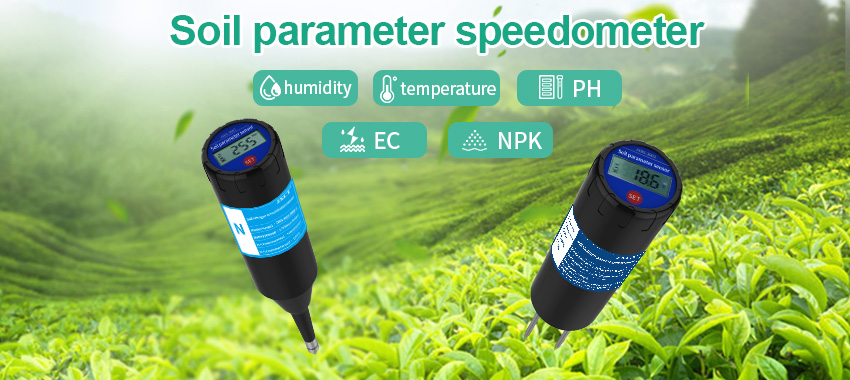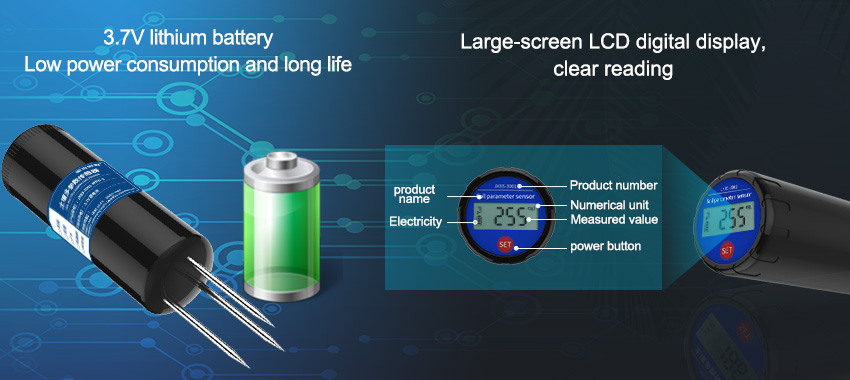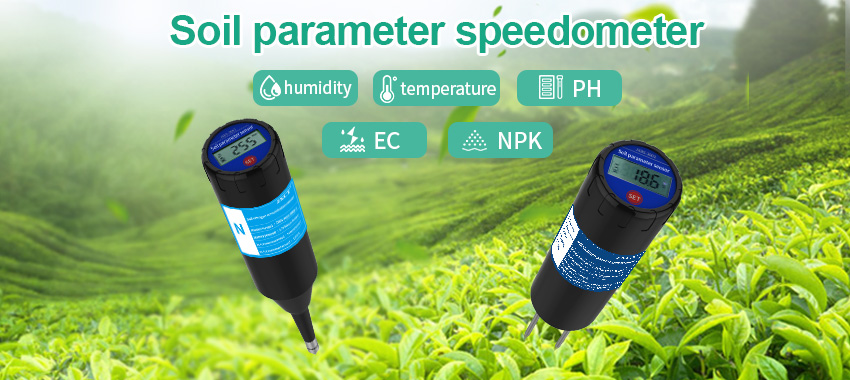In modern agriculture, the use of technology has become essential for improving crop management and increasing yield. One technological innovation that has revolutionized the field is soil sensors. These devices provide valuable data about soil conditions, allowing farmers to make informed decisions and optimize their farming practices. In this article, we will explore the benefits and applications of soil sensors in agriculture, how they enhance crop management and yield, and the future prospects of this technology.
Understanding Soil Sensors:
Soil sensors are electronic devices designed to measure various parameters of the soil, such as moisture levels, temperature, nutrient content, and pH. These sensors are often installed at different depths in the soil, providing a comprehensive view of its condition. The collected data is then transmitted to a central system or accessed through mobile applications, allowing farmers to monitor real-time soil conditions.

Benefits of Using Soil Sensors in Agriculture:
a. Accurate Monitoring of Soil Moisture: Soil moisture is crucial for plant growth and development. Soil sensors provide precise information about moisture levels at different depths, enabling farmers to determine the optimal irrigation schedule. By avoiding over or under-watering, farmers can conserve water resources and improve crop health.
b. Nutrient Management: Soil sensors help farmers assess nutrient levels in the soil, determining whether additional fertilizers are required. By measuring key nutrients like nitrogen, phosphorus, and potassium, farmers can optimize fertilizer application, reducing costs and minimizing environmental impacts.
c. pH and Salinity Management: Soil pH and salinity levels directly affect crop growth. Soil sensors provide real-time data on these parameters, allowing farmers to adjust soil pH and implement appropriate measures to mitigate salinity issues. This ensures optimal growing conditions for crops.
d. Crop Growth Monitoring: Soil sensors help farmers track the growth and development of crops. By analyzing soil temperature and moisture data, farmers can identify any abnormalities or patterns that could impact crop health. This allows for early detection of problems and timely interventions.
e. Precision Irrigation: With the help of soil sensors, farmers can implement precision irrigation techniques. By understanding the moisture distribution in the soil profile, farmers can target irrigation to specific areas that need it the most. This not only saves water but also improves crop yield and quality.
f. Decision Support System: Soil sensor data, when integrated with other agricultural data, forms a comprehensive decision support system. It provides farmers with insights into soil health, crop growth patterns, and environmental conditions, allowing them to make informed decisions about crop rotation, pest management, and resource allocation.
Applications of Soil Sensors:
Soil sensors find applications in various aspects of agriculture:
a. Precision Farming: Soil sensors are instrumental in precision farming practices. By mapping soil characteristics and variability within a field, farmers can tailor their farming techniques, such as variable rate fertilization and seeding, to optimize productivity.
b. Irrigation Management: Soil sensors play a vital role in efficient irrigation management. By continuously monitoring soil moisture levels, farmers can automate irrigation systems or receive timely alerts to make informed irrigation decisions.
c. Nutrient Optimization: Soil sensors assist in optimizing nutrient management. By analyzing nutrient levels in different soil zones, farmers can apply fertilizers more precisely and avoid both deficiencies and excesses. This promotes healthier plant growth and reduces input costs.
d. Disease and Pest Control: Soil sensors can aid in disease and pest control strategies. By monitoring soil conditions that favor or suppress certain pests and diseases, farmers can implement preventive measures or adjust their management practices accordingly.
e. Research and Development: Soil sensors play a significant role in agricultural research and development. They provide valuable data for conducting experiments, evaluating new crop varieties, and studying the impact of different farming practices on soil health and crop yield.
Future Prospects of Soil Sensor Technology:
The future of soil sensors in agriculture looks promising. Here are some potential advancements and developments to expect:
a. Wireless Sensor Networks: The use of wireless networks can enhance the scalability and flexibility of soil sensor systems. By connecting multiple soil sensors in a network, farmers can obtain comprehensive and real-time data for larger fields, improving decision-making accuracy.
b. Internet of Things (IoT) Integration: Soil sensors can be integrated with other IoT devices such as weather stations, drones, and machinery. This integration allows for seamless data exchange and automation, enabling farmers to optimize their farming practices based on real-time information from multiple sources.
c. Data Analytics and Artificial Intelligence: Advanced data analytics and AI algorithms can unlock the full potential of soil sensor data. Machine learning models can analyze large datasets, identify patterns, and generate predictive models to assist farmers in making data-driven decisions.

d. Improved Sensor Accuracy and Durability: Ongoing research aims to improve the accuracy and durability of soil sensors. This includes developing more robust sensor materials, enhancing data collection algorithms, and implementing calibration techniques to reduce measurement errors.
e. Integrated Farm Management Systems: Soil sensors will play a crucial role in integrated farm management systems. These systems will provide a holistic view of different agricultural components, including soil health, crop growth, environmental conditions, and resource utilization. Such systems will enable farmers to optimize their entire farming operation for enhanced productivity and sustainability.
Conclusion:
Soil sensors have transformed agriculture by providing accurate and real-time information about soil conditions. By utilizing this information, farmers can optimize their crop management practices, conserve resources, reduce costs, and enhance overall crop yield. The advancements in soil sensor technology, along with integration with other agricultural technologies like IoT and AI, hold immense potential for sustainable and efficient farming practices. As we continue to advance agriculture with soil sensors, we pave the way for a more productive, resilient, and environmentally friendly future for the agricultural sector.







